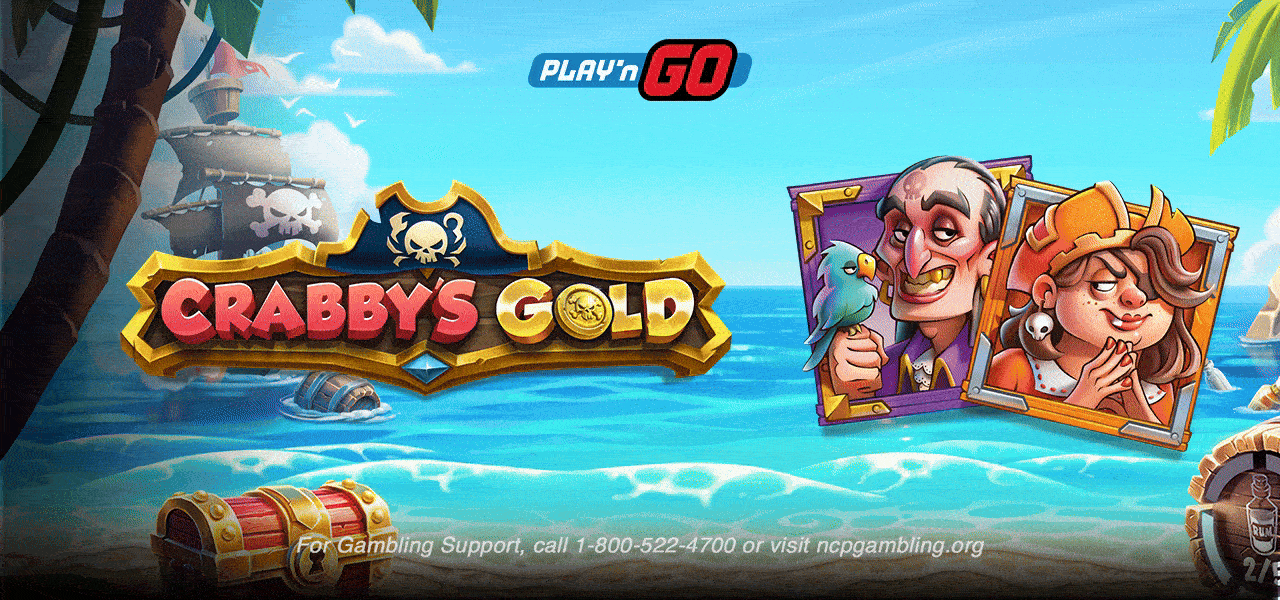eSports
How Esports Companies Can Address The Confusion Around Gambling
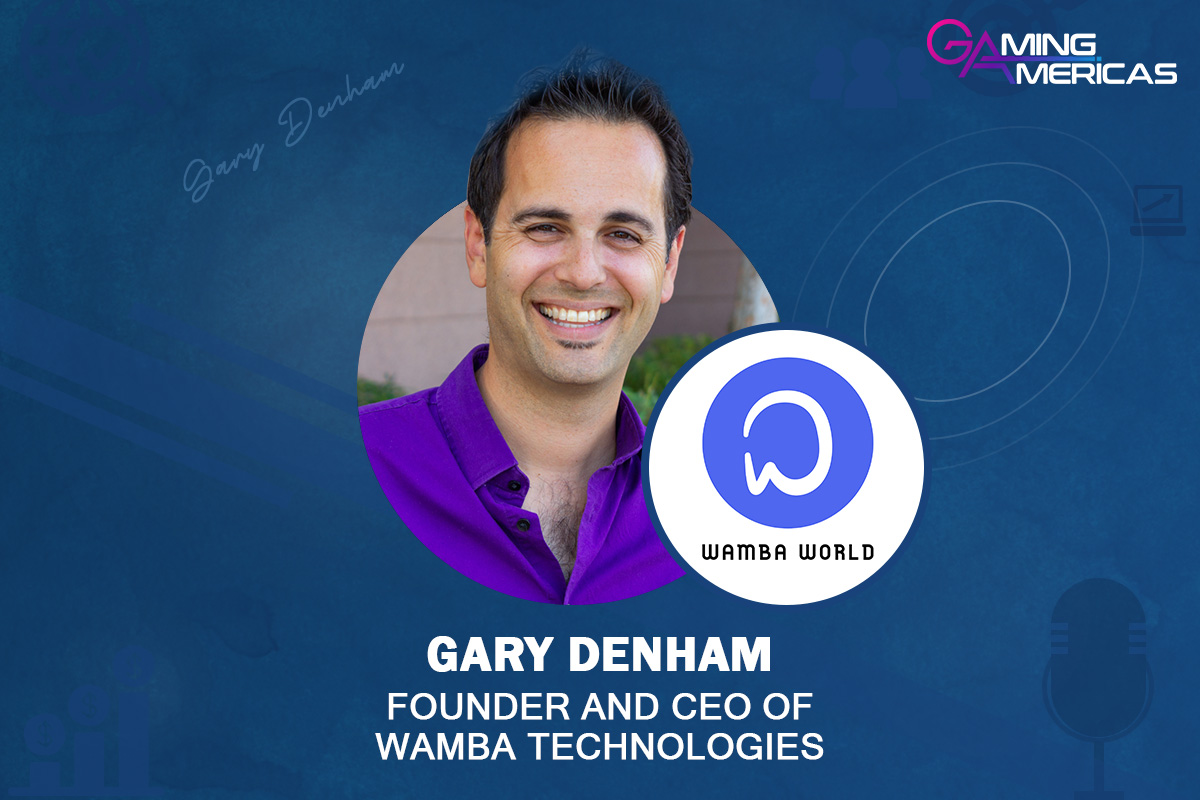
An exclusive Q&A w/ Gary Denham, Founder and CEO of Wamba Technologies and Gamer’s Oasis
What inspired you to found Wamba Technologies and develop the patented esports platform, Gamers Oasis?
My motivation was the void of wholly accessible online gaming competitions. Wamba Technologies, in conjunction with Gamers Oasis, aims to create a platform where gamers can engage in fair and constant competition, free from any suspicions of impropriety, while winning money as a result of their performance. Basically, players will be able to pay an entry fee into an online competition, compete, and win money back if they place well enough in the competition.
Could you elaborate on why the misconception of esports as a form of gambling exists despite the legal framework distinguishing skill-based competitions from games of chance?
This misperception arises from the similarities between online esports competitions and traditional gambling activities, particularly where participants are paying an entry fee and vying for monetary rewards. However, at the most basic level, it comes from industry ignorance.
Anyone who has actually looked at this or participated in esports knows this is no different than tennis, golf, NASCAR, motocross, etc. This just happens to take place online. Aside from that, there is really no difference.
In your recent Forbes article, you draw parallels between online video game competitions and the financial structure of online poker. How do you see this comparison influencing the perception of esports within the regulatory landscape?
This comparison sought to underscore the potential revenue from esports while addressing any misunderstandings regarding its classification as gambling. By framing esports within a recognizable regulatory context and emphasizing its skill-based nature, the intent was to facilitate clearer guidelines and regulations conducive to industry growth. Beyond that, I also wanted to illustrate just how much untapped financial potential exists in the industry, which I aim to capitalize on with Gamers Oasis.
How do you think the historical context of online poker and its impact on the perception of online gambling influences the current discourse surrounding esports and its legal classification?
The confusion and misconceptions stemming from the past have contributed to the ongoing debate over whether esports should be deemed a form of gambling, despite its inherent emphasis on skill. Here is where it becomes very clear: remove the internet from the equation and consider the question again.
Has anybody looked at “real life” video game competitions as “gambling” in the last 40 years (aside from Las Vegas trying to get their hands on it, and failing)? Of course not. So why would featuring the same exact competitions on the internet suddenly somehow magically make this gambling?
It doesn’t. Ergo, this is CLEARLY not gambling.
What measures do you believe are necessary to establish clear guidelines and regulations for esports, ensuring both consumer protection and industry growth?
Nothing governmental. I think where esports are concerned, regulators need to stay out of it.
Will they? Only time will tell — but we don’t regulate golf, NASCAR, tennis, or any other sports. Sure, they each have their own rulemaking bodies, but those are not governmental entities, nor should they be.
I think that to make an exception for esports would set an extremely dangerous precedent and open up all sports to such regulatory oversight. Quite frankly, the day I see the government actually make something in corporate America better, I may be willing to revisit this sentiment. Until then….
How much of the gaming population do you expect to be interested in a platform like Gamers Oasis?
With approximately 660 million actual and potential esports players globally, I expect a significant portion of the gaming population to be interested in a platform like Gamers Oasis. Hundreds of millions of players are traveling to various locations to participate in competitions already.
To give them the ability to simply access this from the convenience and comfort of their own home is something that has gone over exceedingly well in all other comparable situations which we’ve seen. Banking. Shopping. Poker. Collectibles. Multiplayer, casual gaming. Now we’ll see it with video game competition.
What can you share about monetization issues in esports and how Gamers Oasis plans to tackle the problem?
Monetization challenges in esports often stem from an attempt to mirror the traditional sports’ viewer-based model, where money is made by bringing fans out to stadiums or by encouraging them to buy merchandise. In this model, revenue comes from ad sales and sponsorships in addition to gate sales and merchandising.
While that works with traditional sports, it doesn’t translate well to esports. However, with the ease of access to gaming reaching an exponentially larger number of players than traditional sports reaches viewers (basically, not everyone can throw a baseball, but 40% of earth’s population plays video games), focusing on a player-based model that encourages everyone to participate, rather than merely making them a viewer, can produce far greater emotional attachment to the sport resulting in more participation time, more monetization opportunities in general, and ultimately, as a result, more revenue. Simply put, viewers generate some revenue for the sport, but players can be worth much much more than viewers. In video games, every viewer is a potential player, so, let’s make them players!
This is where Gamers Oasis will shine. We are developing technology that will allow players of all skill levels to compete and to know that they are engaging in fair competition. Basically, you could be a bad player, but know that you will only be competing against other bad players, giving you a real chance to win money. This is something that nobody else has seemed to be able to produce in a meaningful manner. We have a way to do this and to ensure this fair play. When anyone can win, all will play. When everyone is playing, the industry experiences exponential growth.
Looking toward the future, what do you see as the future of esports, more specifically in terms of regulatory frameworks and industry development?
One of the fundamental problems esports has had up until now is there is no universal set of guidelines. As I said before, I firmly believe that the government is not the answer.
With our patent, one of the things we intend to do is to have all parties who are licensing the patent join us in setting up core guidelines for all games which feature our technology. We see this as a sort of a start in creating that centralized entity which can help establish and enforce certain guidelines, keeping it as a consensus based entity composed of the major parties who are involved with us in these endeavors, a democratic approach of sorts, with us primarily facilitating the laying of the foundation.
What kind of a relationship do you envision between the casino industry and the esports industry?
Casinos are all about entertainment, and esports bring a whole new level of that to their customers. The possibilities are exciting in that whole new esport-themed experiences can be hosted within casinos. And as casinos seek to diversify their offerings to attract younger demographics, esports present a lucrative opportunity for engagement and revenue generation through esports betting and tournaments themselves.
I think that third-party betting should be separated from any true esports platform. A true esports platform should only have the player paying their entry fees and should not involve third parties wagering on the outcome when they are not actually involved in the competition.
This is where the casino industry comes in. The casinos can be a distinct and separate entity to facilitate those kinds of transactions, keeping them wholly separated from the platforms featuring esports.
One of the major reasons for this separation is age requirements. A true esports platform should allow kids (with parental permission) to be allowed to compete just as they do in real life. However, I feel very strongly that wagering on anything as a non-participant should have some restrictions, as it has the means to cause harm to younger, developing minds. By separating the two, we can keep the competition platforms “kid friendly” while still serving the needs of the audience that seeks the other service.
eSports
Esportes da Sorte celebrates Brazilian culture with Parintins and São João Sponsorships

Esportes Gaming Brasil, the owner of Onabet and Esportes da Sorte, is making its debut at the 58th Parintins Folklore Festival with an interactive project that blends cultural promotion, economic development, and social responsibility.
The brand becomes the first regulated betting operator to offer institutional support to the event, which welcomes around 120,000 visitors and generates BRL 184 million in local economic activity, according to the Amazonas State Government.
This cultural commitment comes on the back of Esportes Gaming Brasil sponsoring 31 São João festivals during June in 27 cities across the Northeast and Southeast regions. This initiative strengthens the brand’s strategy of connecting with the public through the appreciation of Brazilian cultural expressions.
Esportes da Sorte’s focus was creating memorable experiences as each event featured scenography by Pernambucan artist Perron Ramos. Another notable element was the Vila Junina (June Village), a themed area blending traditional elements with interactive experiences. Classic games such as Pescaria da Sorte (Fishing of Fortune), Barraca do Beijo (Kissing Booth), and Argola da Sorte (Ring Toss) bring nostalgia to the festivities.
For the three-day Parintins Folklore Festival starting today, the brand will be energising Parintins with a series of experiences celebrating local culture. These include a panoramic lounge with a special view of the Bumbódromo, the Truck da Sorte — a space combining karaoke and free hydration — as well as a Social Arena installed in the Garantido and Caprichoso neighborhoods, featuring artistic performances, rest areas, free water distribution, and Instagram-worthy spots. Festivalgoers will also be able to get their hands on custom giveaways throughout the festival. All elements of the visual project are inspired by Amazonian art. The graphics feature illustrations by Curumiz, a Parintins-based duo formed by Alziney Pereira and Kemerson Freitas.
Sofia Aldin, CMO of Esportes Gaming Brasil, the group behind the brand commented: “Esportes Gaming Brasil cares passionately about regional values and strengthening Brazilian popular culture. It’s more than simply showcasing our brand, we want to create value for the people who live for events like the Parintins Folklore Festival and the São João festivals. Being part of these events backs our strategy of supporting traditions that drive local economies and celebrate regional identities.”
eSports
BETBY EXPANDS LATAM FOOTPRINT WITH MOBADOO ESPORTS PARTNERSHIP
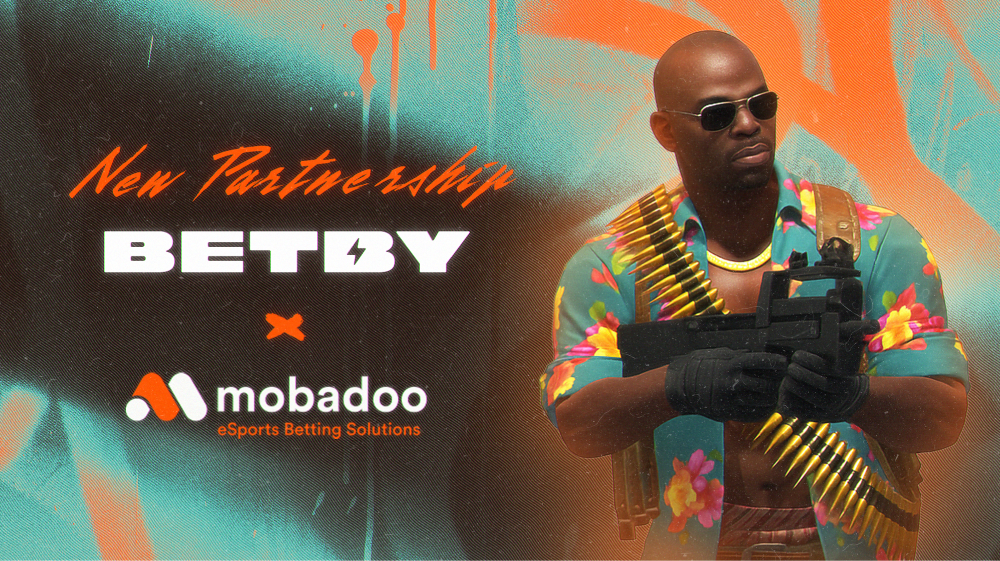
BETBY, a leading sportsbook supplier, has announced a new partnership with prominent LATAM-focused esports provider Mobadoo, in a move that will see its Betby.Games portfolio fully integrated into Mobadoo’s product lineup.
This collaboration enables Mobadoo — which has an established presence and deep market understanding across Latin America — to incorporate BETBY’s proprietary and award-winning esports offering, delivering dynamic and fast-paced betting content to its growing user base. Among Betby.Games’ titles are eSoccer, eBasketball, eFighting, eCricket, eShooter, eHorse Racing, eTennis, and the Brazil-relevant eVaquejada.
As one of the most comprehensive and high-frequency esports betting solutions in the industry, Betby.Games offers access to more than 70 tournaments, over 350 betting markets, and more than 300,000 live matches each month. This collaboration will not only enhance Mobadoo’s offering but also reinforce BETBY’s position as a leading esports supplier in the LATAM region, a key pillar in the supplier’s global expansion strategy.
“Mobadoo has an excellent reputation and strong regional expertise, making them an ideal partner for us. Their commitment to innovation in esports and the rapid growth of this vertical in the region made our partnership only a matter of time,” commented Kirill Nekrasov, BETBY’s Head of Sportsbook Product. “This agreement not only expands the reach of our unique Betby.Games content, but also aligns perfectly with our global strategy of delivering flexible, high-performance esports solutions to next-generation operators. Together, we’re set to further strengthen our leading position in the LATAM region.”
José Aníbal Aguirre, Chief Marketing Officer at Mobadoo, added: “We’re thrilled to integrate Betby.Games into our offering. The depth and quality of their esports content is unmatched, and this partnership gives us a powerful new edge in catering to LATAM’s passionate esports fanbase. With BETBY’s support, we’re confident we can elevate the player experience and unlock new growth opportunities across the region.”
eSports
Red Bull Home Ground Heads to New York this November
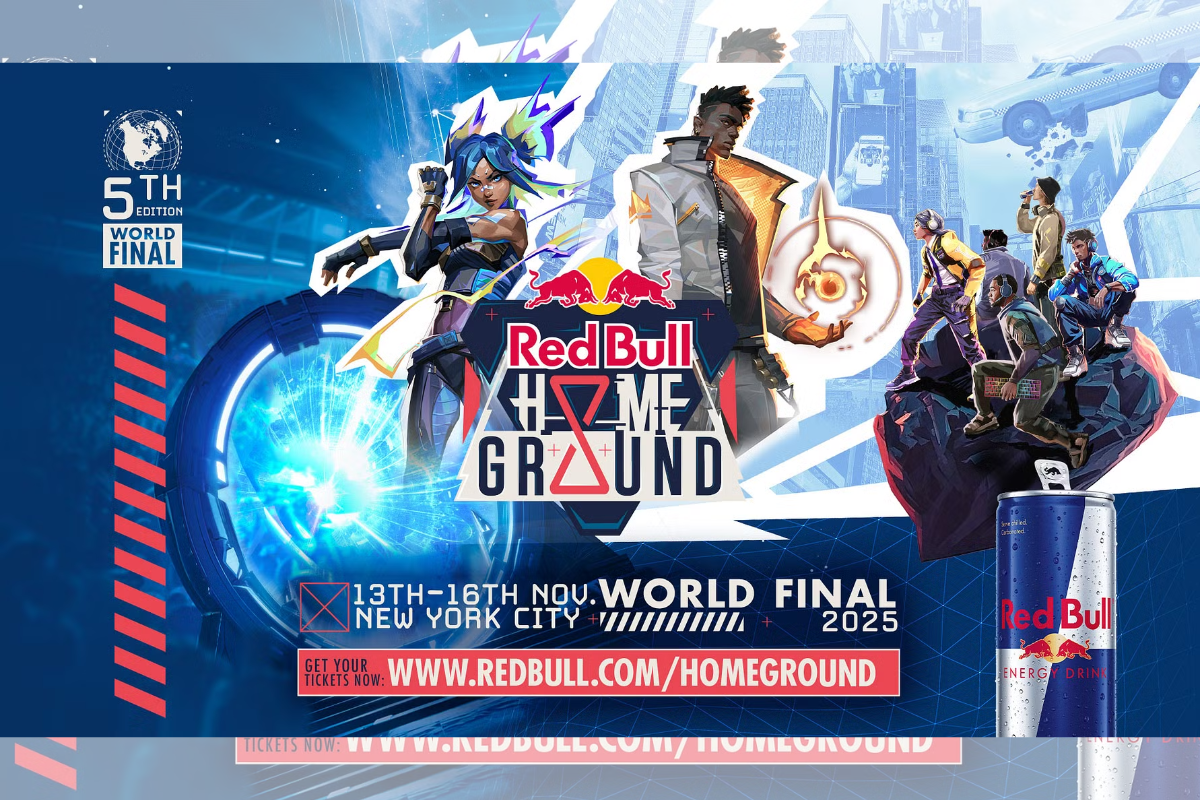
Red Bull Home Ground, the pro VALORANT invitational, is set to make its return with a blockbuster fifth edition, bringing together the world’s top teams to New York City, for one of the most exciting showcases in the esports calendar. From November 13–16, the iconic Hammerstein Ballroom at the Manhattan Center will host four electrifying days of competition, as global giants and rising stars fight to claim the title of 2025 off-season champions.
This year, Red Bull Home Ground will feature a stacked lineup of elite contenders. Returning champions T1 are ready to defend their crown, joined by two-time VCT Global Event winners Fnatic and fan-favourites G2 Esports, Sentinels, and ZETA DIVISION. Joining these giants will be the two top teams who earn their place through the Play-In Stage and an additional team to be revealed – a gauntlet of global qualifiers open to all in India, USA, Spain, Turkey, Chile, Egypt, Belgium, Germany, South Africa, Netherlands, Japan, and EMEA qualifiers, giving players around the world the chance to earn a spot to go against the best-of-the-best on the main stage. The final main stage slot will be revealed at a later date.
For the first time, the Red Bull Home Ground World Final will be hosted in the United States, taking place at the legendary Hammerstein Ballroom in Manhattan. Known for its grand Beaux-Arts architecture and storied history hosting icons like The Grateful Dead and Guns N’ Roses, the venue offers a perfect blend of classic New York legacy and modern spectacle for this high-stakes tournament. The action kicks off on November 13-14, with both days dedicated exclusively to the Play-in stage and the opening stages of the competition. For fans eager to experience the action live, tickets for the public main stage event on November 15-16 are available for purchase via Ticketmaster.
At last year’s Red Bull Home Ground in Berlin, fans were treated to an unforgettable grand final as T1 stormed to victory over Cloud9, clinching the championship title with a dominant 3-1 series. With every edition, Red Bull Home Ground has elevated the VALORANT off-season calendar, known for its fast-paced format, jaw-dropping plays, and international flair. Red Bull Home Ground continues to be a staple tournament for pro teams looking to compete against the best competition and for fans ready to witness thrilling match-ups.
-
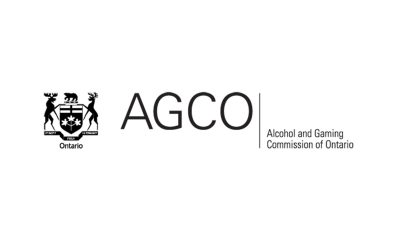
 Canada6 days ago
Canada6 days agoAGCO Fines Great Canadian Casino Resort Toronto $350,000 for Serious Regulatory Violations Linked to Impromptu After-Party on Gaming Floor
-
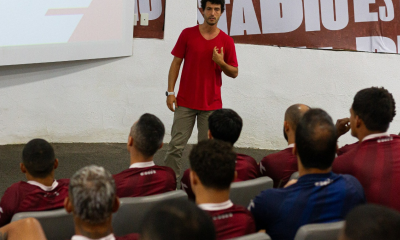
 Compliance Updates6 days ago
Compliance Updates6 days agoEsportes da Sorte holds forum on “Integrity in Sports” with Ceará and Náutico
-

 Latest News6 days ago
Latest News6 days agoBlokotech unveils Cristian Tonanti as new Casino Partnership Manager
-
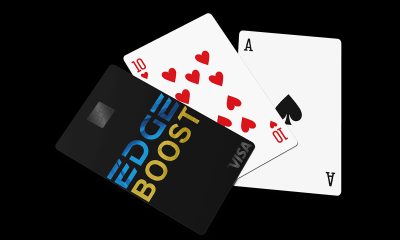
 Latest News6 days ago
Latest News6 days agoEDGE Boost Named Preferred Payment Method for World Series of Poker Event Series
-
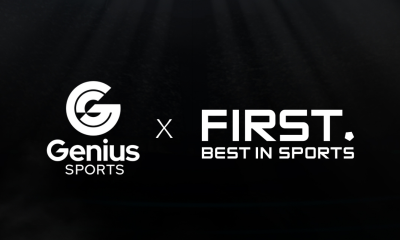
 Latest News6 days ago
Latest News6 days agoFIRST and Genius Sports Extend Landmark Data Partnership, Powering Continued Growth
-

 Canada6 days ago
Canada6 days agoIGT and Atlantic Lottery Sign Eight-Year Video Lottery Central System Technology Agreement
-

 Latest News5 days ago
Latest News5 days agoNASCAR & iRacing Renew Partnership with PlayVS
-

 Latest News3 days ago
Latest News3 days agoRivalry Reports Full-Year 2024 Results as Strategic Turnaround Takes Hold, Operating Loss Narrows, and Efficiency Improves


